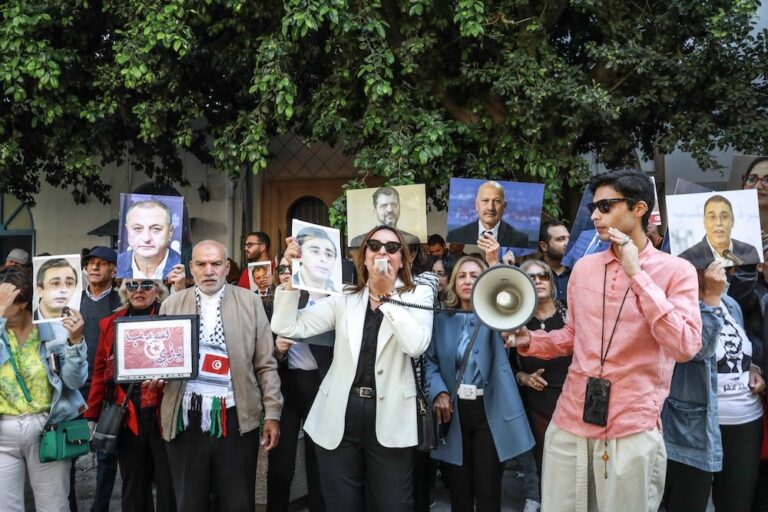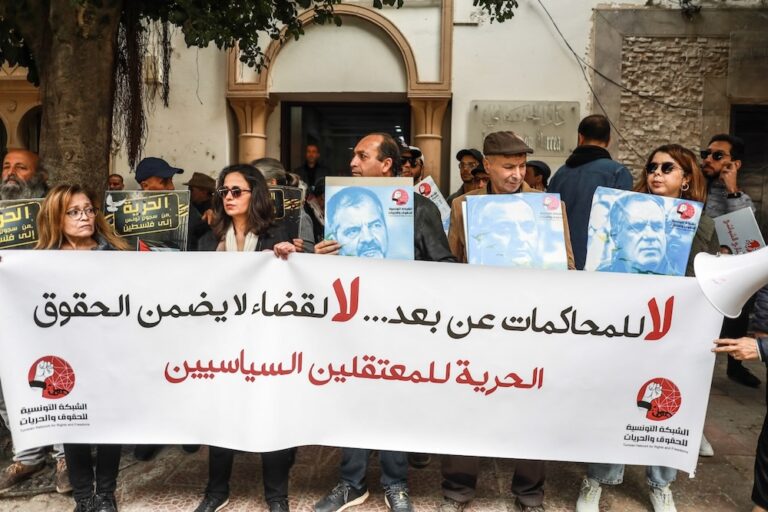(RSF/IFEX) – In a letter addressed to the Minister of the Interior Abdallah Kaabi, RSF protested the banning of two foreign publications, “El Mustaqilla” and “Salama”. RSF Secretary-General Robert Ménard asked the minister “to cancel this decision.” “Not content to prevent Tunisian journalists from expressing themselves freely in their country, the government bans all foreign […]
(RSF/IFEX) – In a letter addressed to the Minister of the Interior Abdallah Kaabi, RSF protested the banning of two foreign publications, “El Mustaqilla” and “Salama”. RSF Secretary-General Robert Ménard asked the minister “to cancel this decision.” “Not content to prevent Tunisian journalists from expressing themselves freely in their country, the government bans all foreign publications which dare to deal with the question of human rights in Tunisia,” added Ménard. RSF recalled that numerous European and North African newspapers are still banned by Zine el Abidine Ben Ali’s regime.
According to information received by RSF, the last issue of the fortnightly “Salama”, published in Paris, was banned in Tunisia. The issue, which contained an article about the status of women, pointed out “the limits of freedom of expression for Tunisian women”, among other issues. The preceding issue, also banned, featured an article titled “Tunisia: the paradox of a democracy a minima”. The most recent issue of the Arabic weely “El Mustaqilla”, published in London, was also banned. Two articles dealt with human rights in the country. In both cases, the authorities did not give any explanations for the bans.
Numerous foreign publications are still banned in Tunisia, including the French newspapers (“Libération”, “Charlie Hebdo”, “La Croix”, “Le Canard enchaîné” and “L’Humanité”), privately-owned Algerian newspapers and certain privately-owned Moroccan newspapers. Moreover, authorised newspapers such as “Le Monde”, “Jeune Afrique-L’Intelligent” and “Courrier international” are censored when they deal with the issue of human rights in Tunisia. The press on the Internet is also targeted: Tunisian news websites – such as Takriz (www.takriz.org) or Kalima (www.kalimatunisie.com) – and some human rights organisations’ websites are unavailable from Tunisia.
To enable Tunisian journalists to express themselves freely, when they cannot do so in their own country, RSF hosts on its website:
– every week, Taoufik Ben Brik’s “La chronique du mouchard”
– every month, Sihem Bensedrine’s webmagazine Kalima


